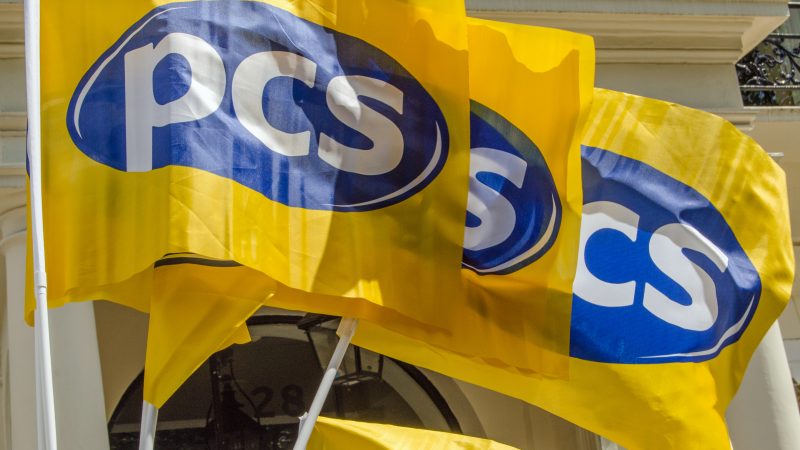
The Public and Commercial Services union has announced an “escalation” of strike action by members, with general secretary Mark Serwotka declaring that the union “won’t shift” its position unless the government makes an improved pay offer.
The PCS has revealed today that further strikes will commence affecting the Department for Work and Pensions and the courts. Members working as driving examiners and for Hinduja Global Services on the Disclosure and Barring Service contract will also be involved in the walk-outs.
The union has already announced eight days of strike action by Border Force staff at Heathrow, Gatwick and several other airports. Members at the Rural Payments Agency began a series of strikes on Tuesday, while those working for National Highways will commence action on Friday.
Serwotka said today: “We’re delivering on our promise to escalate our action, and we shall not cease for as long as the government continues to expect our hard-working members to get through the winter with just a 2% pay rise.
“If ministers can shift their position on wind turbines and building houses because some Tory backbenchers aren’t happy, they can shift their position on in-work poverty.
“One thing is certain: we won’t shift our position until and unless the government puts money on the table for our members, some of whom are claiming the benefits they themselves administer, thousands of whom are forced to use food banks because they can’t afford to eat.”
“If the government wants a fight, it will get one. But if it wants to resolve this dispute, we’re prepared to work with them to reach a deal. The situation is in their hands,” the civil service union leader added.
The PCS announced in November that its ballot for strike action in the civil service received an average ‘yes’ vote of 86.2% across the areas balloted – the highest in the union’s history. Approximately 100,000 civil servants are thought to have voted in favour of strike action.
A total of 126 employer areas voted in favour of strikes and met the 50% turnout threshold legally required for industrial action. The average turnout across all balloted areas was 51.6%.
Following the result, the union announced an “initial programme” of “hard-hitting, targeted” strike action across multiple government departments following unsuccessful negotiations with the Cabinet Office.
The PCS said the government had not made “any proposals” that addressed its demands for a 10% pay rise, better pensions, increased job security and no cuts to redundancy terms.
Its national executive committee subsequently agreed an initial programme of strike action impacting the Home Office, the Department for Transport and the Department for Environment, Food and Rural Affairs.




More from LabourList
‘Tackling poverty should be the legacy of Keir Starmer’s government’
‘The High Court judgment brings more uncertainty for the trans community’
‘There are good and bad businesses. Labour needs to be able to explain the difference’